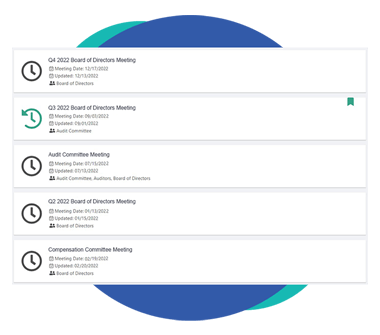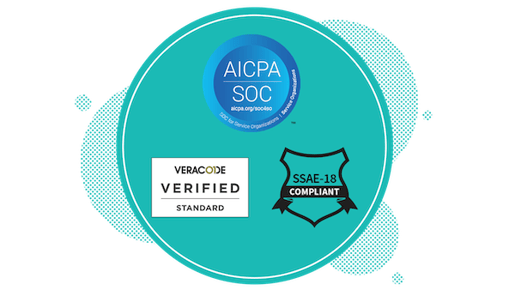Public vs. private companies, the evolving role of Boards of Directors, and the benefits of board management software.
Most people think of private companies as their favorite small businesses in their communities. But, like public companies, private companies can be huge—worth tens of billions or more, like Fidelity Investments, Mars Candy Co., and SC Johnson. The key differences between public and private companies involve who owns the company, their reporting requirements, and how they source funds.
Private Companies vs. Public Companies
A private company’s founders and/or investors own the company, and it doesn’t have any public reporting obligations. A private company becomes public when they meet any of these conditions:
-
The company offers shares to the public in an Initial Public Offering (IPO), becoming a publicly traded and owned entity.
-
Their investor base becomes large enough that it activates public reporting requirements.
-
A company can also voluntarily register with the U.S. Securities and Exchange Commission (SEC).
 Private companies can have as few as one board member, who can be elected or appointed by the board itself. All the operational and strategic decisions and responsibilities are handled in-house. That means that the Board of Directors in private companies is the governing body of the organization. The board’s role includes determining budgets, setting operational goals, securing funding, and ensuring that the company’s leadership/executive team is performing and reaching the company’s goals.
Private companies can have as few as one board member, who can be elected or appointed by the board itself. All the operational and strategic decisions and responsibilities are handled in-house. That means that the Board of Directors in private companies is the governing body of the organization. The board’s role includes determining budgets, setting operational goals, securing funding, and ensuring that the company’s leadership/executive team is performing and reaching the company’s goals.
Public (or publicly traded) companies are owned by their shareholders, and they have very strict public reporting requirements to adhere to. Every public company is required to have a Board of Directors that’s responsible to the company’s shareholders. They’re elected to represent and act in the shareholders’ best interests. Boards of directors for public companies can vary in size from as few as three members to up to thirty members or more. The overall operational strategy and direction of public companies is determined by vote during regular shareholder meetings.
The Evolving Role of the Board of Directors
Whether they’re serving private companies or public ones, the role of the board of directors has been evolving quickly.
Increased pressure from stakeholders has led organizations to leverage every tool at their disposal. Even pre-Covid, Boards of Directors were feeling the corresponding increased expectations, from investors, consumers, their communities, regulatory bodies, and more. Boards are expected to do more, and have more of an impact, than they did yesterday.
Historically, the role of the Board of Directors was strictly financial, supporting the business by providing strategic guidance to the organization regarding company issues and policies. Now, boards must contend with non-traditional issues, including DE&I, ESG, keeping up with the digital transformation, and more.
These added responsibilities mean that the value boards can bring to the organization is more of a competitive advantage than ever. Consequently, boards have had to evolve the way they do business.
Many boards still manage their meetings and corporate governance through email, file-sharing apps, legacy products, and printing, faxing, and mailing documents.
Many other boards are taking advantage of powerful board management software. It’s designed to help Boards of Directors work as effectively and productively as they can, so they can focus on moving the business forward.
Benefits of Board Management Software
-
Access to Information. Using board management software gives board members immediate access to board and meeting information, from any device and any location. Board members can easily access all the information they need, so they can come to meetings prepared to make decisions and get things done. It eliminates issues with version control, and information can be updated and shared in real time.
-
Better Governance. Board portals give members quick and easy access to all the board-related information they need. All meeting management tasks, including voting, filling out surveys, approving minutes, reviewing agendas, and more, can be done using the software. And board administrators have all the tools they need to manage the day-to-day meeting process. This increased efficiency means better-performing boards and better corporate governance.

-
Board members and admins can access board materials from anywhere—home, office, even when traveling—and on any device. They can work on checking off their board-related responsibilities when it works best for them.
-
Engaged Board Members. Board management software makes it easier for members to communicate between meetings. Fostering collaboration helps keep members and meetings on schedule and leads to faster and more well-informed decisions.
-
Increased Security. Cybercrime is increasing, so increased security is one of the main reasons Boards adopt board management software. There’s no more paper to keep track of, and board management software includes stringent security protocols to protect sensitive information.

-
Save Time. Board management software saves admins and members time by streamlining the processes that are necessary for good corporate governance. From building agendas and creating surveys to voting and approving minutes, it’s all easier and faster with a board porta
-
Permissions Control. Boards that employ board management software can ensure that everyone only sees the information they’re supposed to see. Permissions can be set for specific documents, groups, and committees, and documents can be set to be automatically archived or deleted.

-
Increase ROI. Board portals save companies money. They eliminate the costs associated with printing and mailing physical board books and other materials. And the board meeting management process is streamlined for members and admins, saving administration costs.
For private and public companies, board meeting software helps boards of directors increase their efficiency and productivity. It makes it easy for them to keep up with the constantly evolving requirements and expectations put on them by their shareholders and stakeholders.
Other posts you might be interested in
View All PostsSubscribe to email updates
Get updates delivered directly to your inbox.


